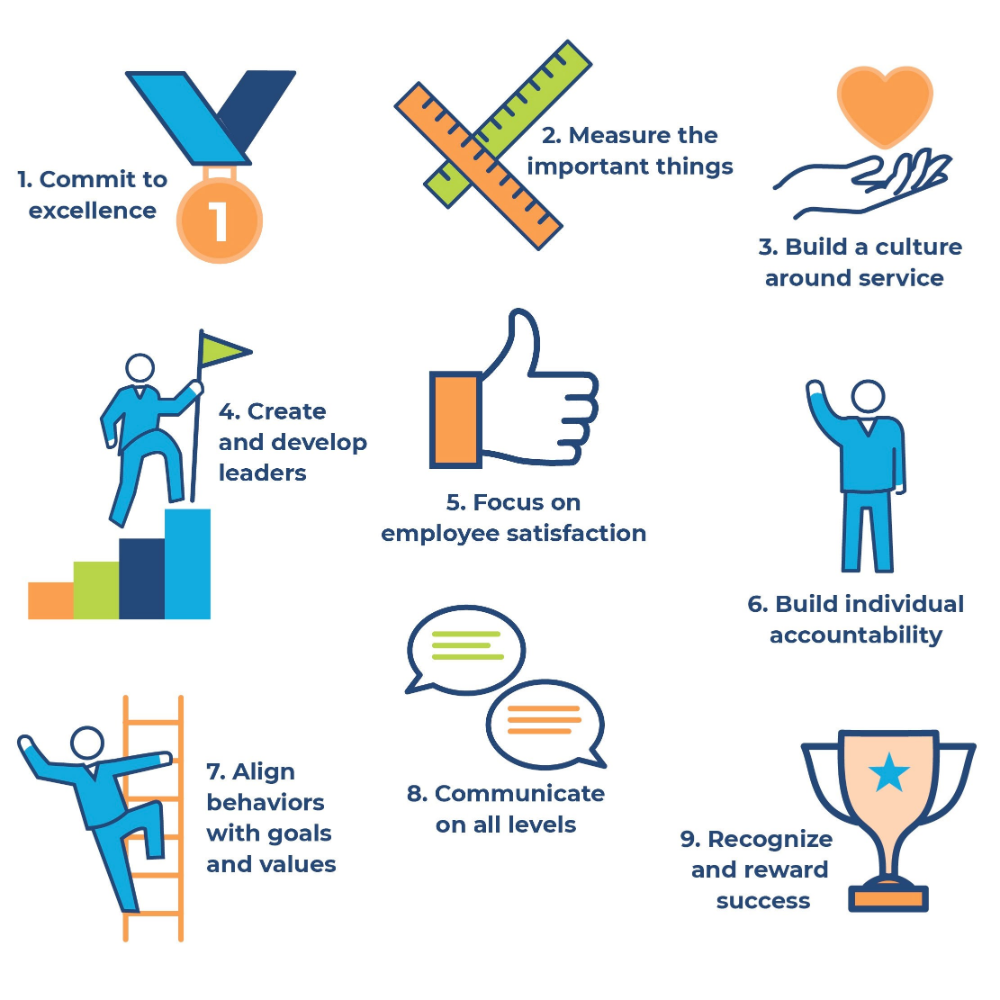Nursing leadership training empowers nurses with the skills and knowledge necessary to excel in leadership roles within healthcare organizations. This training is essential for developing effective nurse leaders who can drive innovation, improve patient outcomes, and shape the future of healthcare.
Nursing leadership training programs provide a comprehensive approach to developing core competencies, including communication, decision-making, strategic planning, and financial management. These programs also emphasize the importance of experiential learning, mentorship, and networking opportunities to enhance the learning experience and foster professional growth.
Understanding Nursing Leadership Training

Nursing leadership training is a crucial aspect of healthcare management, as it equips nurses with the skills and knowledge necessary to effectively lead and manage nursing teams. This training encompasses a wide range of topics, including leadership principles, communication strategies, conflict resolution techniques, and financial management.
By investing in nursing leadership development, healthcare organizations can enhance the quality of patient care, improve staff satisfaction, and optimize operational efficiency.
Benefits of Nursing Leadership Training
- Enhanced patient care: Effective nursing leaders create a positive work environment that fosters collaboration, open communication, and evidence-based practices, ultimately leading to improved patient outcomes.
- Increased staff satisfaction: Nursing leadership training empowers nurses to take ownership of their roles, contribute to decision-making, and develop professionally, resulting in higher job satisfaction and reduced turnover rates.
- Improved operational efficiency: Well-trained nurse leaders possess the skills to manage resources effectively, optimize staffing levels, and streamline processes, leading to increased efficiency and cost savings.
Challenges of Nursing Leadership Training
- Time constraints: Nurses often have busy schedules, making it challenging to allocate time for training. Healthcare organizations must prioritize leadership development and provide flexible training options to address this challenge.
- Financial resources: Investing in nursing leadership training can be costly. However, the long-term benefits, such as improved patient care and increased staff retention, far outweigh the initial investment.
- Resistance to change: Some nurses may be resistant to change and may view leadership training as unnecessary or disruptive. Effective communication and a clear understanding of the benefits of training can help overcome this resistance.
Real-World Examples of Successful Nursing Leadership Training Programs
- The American Nurses Credentialing Center (ANCC) offers a Nurse Executive, Advanced Practice Nurse, and Clinical Nurse Leader certification program that provides comprehensive leadership training for nurses.
- The American Organization of Nurse Executives (AONE) offers a variety of leadership development programs, including the Nurse Manager Certification Program and the Executive Nurse Fellowship.
- The National Association of Clinical Nurse Specialists (NACNS) offers a Nurse Executive Leadership Institute that provides training in strategic planning, financial management, and human resource management for nurse leaders.
Essential Components of Nursing Leadership Training
Nursing leadership training programs equip nurses with the essential knowledge, skills, and competencies required to excel in leadership roles within the healthcare system. These programs focus on developing the core capabilities necessary for effective nursing leaders, enabling them to navigate the complexities of healthcare delivery, inspire and motivate teams, and drive positive patient outcomes.
Core Competencies and Skills
Effective nursing leaders possess a comprehensive set of core competencies and skills, including:
- Leadership and Management: Strategic planning, decision-making, team building, conflict resolution
- Communication and Interpersonal Skills: Active listening, empathy, negotiation, public speaking
- Clinical Expertise: Advanced knowledge of nursing practice, evidence-based care, and patient safety
- Quality Improvement and Patient Safety: Risk management, performance improvement, accreditation standards
- Ethics and Legal Responsibilities: Ethical decision-making, legal compliance, patient advocacy
- Financial Management: Budgeting, resource allocation, cost-effective care
- Information Technology: Use of electronic health records, data analysis, and technology for healthcare delivery
Key Modules and Topics
Nursing leadership training programs typically cover a wide range of modules and topics, such as:
- Leadership Theories and Styles
- Strategic Planning and Management
- Team Building and Motivation
- Conflict Resolution and Negotiation
- Quality Improvement and Patient Safety
- Ethics and Legal Responsibilities
- Financial Management
- Information Technology for Healthcare
- Current Trends and Issues in Nursing
Experiential Learning, Mentorship, and Networking
In addition to theoretical knowledge, experiential learning, mentorship, and networking opportunities play a crucial role in developing effective nursing leaders. These elements provide hands-on experience, personalized guidance, and professional connections that enhance the learning process and prepare nurses for real-world leadership challenges.
Best Practices in Nursing Leadership Training

Nursing leadership training plays a pivotal role in shaping effective leaders who can navigate the complexities of healthcare delivery. By incorporating evidence-based approaches, leveraging technology, and utilizing robust evaluation methods, organizations can enhance the quality and impact of their training programs.
Nursing leadership training programs often feature renowned keynote speakers on leadership to share their insights and inspire participants. These experts offer valuable perspectives on leadership strategies, effective communication, and navigating challenges in the healthcare industry. By attending such training programs and listening to keynote speakers, nurses can enhance their leadership skills and contribute to the advancement of patient care and organizational success.
Designing Effective Training
Effective nursing leadership training programs are grounded in sound pedagogical principles and incorporate evidence-based practices. These include:
- Needs assessment:Identifying specific leadership development needs through surveys, interviews, and performance evaluations.
- Learner-centered design:Tailoring training content and delivery methods to meet the diverse learning styles and needs of participants.
- Experiential learning:Providing opportunities for hands-on practice, simulations, and case studies to reinforce concepts and develop critical thinking skills.
Role of Technology and Simulation
Technology and simulation have emerged as powerful tools in nursing leadership training. They offer:
- Enhanced engagement:Interactive simulations and virtual reality experiences create immersive learning environments that boost engagement and knowledge retention.
- Safe practice:Simulation allows participants to practice leadership skills in a controlled environment, reducing the risk of errors in real-world settings.
- Personalized learning:Adaptive learning platforms provide personalized feedback and recommendations based on individual progress, enabling participants to focus on areas where they need the most support.
Evaluating Training Effectiveness
To ensure that nursing leadership training programs are meeting their objectives, it is crucial to conduct rigorous evaluations. This includes:
- Pre- and post-training assessments:Measuring changes in knowledge, skills, and attitudes before and after the training.
- Participant feedback:Gathering feedback from participants on the training’s content, delivery, and impact.
- Long-term follow-up:Assessing the sustained impact of the training on leadership behaviors and organizational outcomes.
Emerging Trends in Nursing Leadership Training

The landscape of nursing leadership training is constantly evolving, driven by emerging trends and innovations. Globalization, technological advancements, and healthcare reform are reshaping the way nurses are prepared for leadership roles.
Impact of Globalization on Nursing Leadership Training
- Increased mobility of nurses across borders requires leadership training that prepares them for diverse cultural contexts.
- Global partnerships and collaborations enhance opportunities for nurses to learn from different healthcare systems.
- Nursing leadership training must incorporate global perspectives and address cross-cultural communication challenges.
Role of Technology in Nursing Leadership Training
- Virtual and online platforms enable flexible and accessible leadership development programs.
- Simulation technologies provide immersive and realistic training experiences.
- Data analytics and artificial intelligence (AI) tools support personalized learning and decision-making.
Influence of Healthcare Reform on Nursing Leadership Training
- Value-based care models emphasize the importance of nurse leaders in improving patient outcomes.
- Interdisciplinary collaboration is crucial in addressing complex healthcare challenges.
- Leadership training must prepare nurses to navigate the evolving healthcare landscape and advocate for patient-centered care.
Interdisciplinary Collaboration in Nursing Leadership Training
- Collaboration with other healthcare professionals enriches leadership perspectives and fosters innovation.
- Interdisciplinary teams require nurses to develop effective communication and coordination skills.
- Nursing leadership training programs should incorporate opportunities for interdisciplinary learning and practice.
Case Studies of Effective Nursing Leadership Training

Successful nursing leadership training programs showcase innovative approaches, robust curricula, and transformative outcomes. By examining case studies from diverse healthcare settings, we can glean valuable insights into the key factors that contribute to their effectiveness.
Enhance your nursing leadership skills with specialized training. Consider pursuing a master of science in nursing leadership and management to gain advanced knowledge and practical experience. This program empowers nurses to lead effectively, improve patient outcomes, and navigate the evolving healthcare landscape.
By investing in nursing leadership training, you’ll drive innovation, foster collaboration, and elevate the quality of care.
These case studies provide a roadmap for designing and implementing impactful leadership training programs that empower nurses to excel in their roles, improve patient care, and advance the nursing profession.
Case Study: St. Mary’s Hospital Nursing Leadership Academy
St. Mary’s Hospital implemented a comprehensive Nursing Leadership Academy to enhance the leadership capabilities of its nursing staff. The program focused on developing essential leadership competencies, including strategic planning, communication, and conflict resolution.
Nursing leadership training is essential for nurses who want to advance their careers. The san diego women’s leadership association offers a variety of training programs that can help nurses develop the skills they need to be effective leaders. These programs cover a wide range of topics, including communication, conflict resolution, and strategic planning.
By completing a nursing leadership training program, nurses can gain the knowledge and skills they need to make a positive impact on their patients, their colleagues, and their community.
Key factors contributing to its success:
- Tailored curriculum aligned with the hospital’s strategic goals
- Mentorship program connecting participants with experienced leaders
- Simulation exercises providing hands-on practice in leadership situations
Outcomes and impact:
- Increased nurse satisfaction and retention
- Improved patient outcomes through enhanced collaboration and communication
- Recognition as a top nursing leadership training program by the American Nurses Credentialing Center
Future Directions in Nursing Leadership Training

Nursing leadership training is poised to evolve significantly in the coming years, driven by advancements in healthcare technology, changing patient demographics, and the increasing complexity of healthcare systems.To meet these challenges, nursing leadership training programs must adapt and incorporate emerging areas of focus and research.
These include:
Emerging Areas of Focus and Research
- Data-driven decision-making:Utilizing data analytics to improve patient outcomes, optimize resource allocation, and enhance operational efficiency.
- Interprofessional collaboration:Fostering teamwork and collaboration among nurses, physicians, and other healthcare professionals to improve patient care and reduce errors.
- Technology integration:Leveraging technology to enhance communication, streamline workflows, and provide personalized patient care.
- Emotional intelligence:Developing nurses’ emotional intelligence to enhance communication, build trust, and manage stress.
Innovative Strategies to Enhance Effectiveness and Accessibility
To enhance the effectiveness and accessibility of nursing leadership training, innovative strategies must be explored. These include:
- Personalized learning:Tailoring training programs to individual learning styles and career goals.
- Blended learning:Combining online and in-person learning to provide flexibility and accessibility.
- Simulation-based training:Utilizing simulations to provide realistic and immersive learning experiences.
- Mentorship and coaching:Providing ongoing support and guidance to new and aspiring nurse leaders.
By embracing these future directions, nursing leadership training programs can equip nurses with the skills and knowledge necessary to lead and innovate in the rapidly changing healthcare landscape.
Summary

Nursing leadership training is a transformative experience that prepares nurses to assume leadership roles with confidence and competence. By investing in nursing leadership development, healthcare organizations can cultivate a workforce of empowered leaders who are equipped to meet the challenges of the ever-changing healthcare landscape.
Popular Questions: Nursing Leadership Training
What are the benefits of investing in nursing leadership training?
Investing in nursing leadership training enhances patient care, improves staff satisfaction, reduces turnover rates, and promotes innovation within healthcare organizations.
What are the key components of nursing leadership training?
Nursing leadership training programs typically cover core competencies such as communication, decision-making, strategic planning, financial management, and ethical leadership.
How can nurses access nursing leadership training?
Nursing leadership training is available through various channels, including online courses, workshops, and degree programs offered by universities and professional organizations.